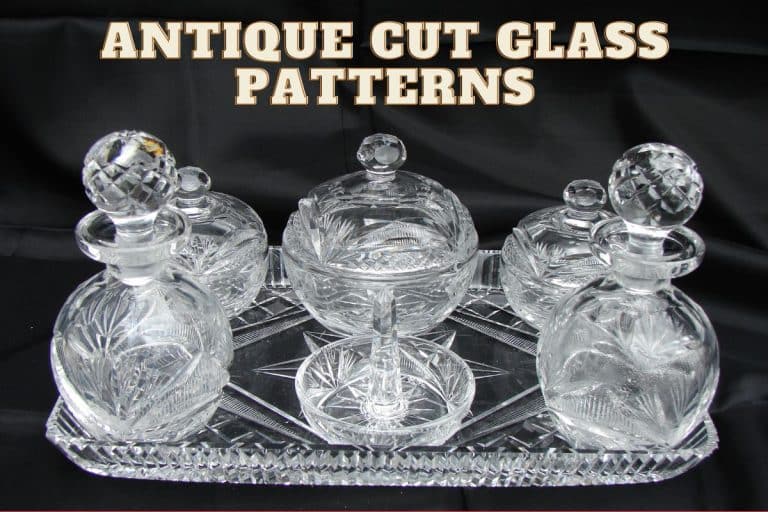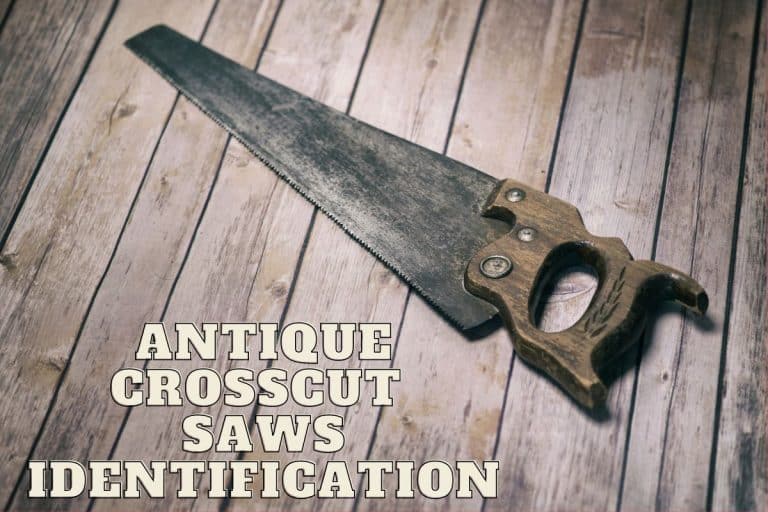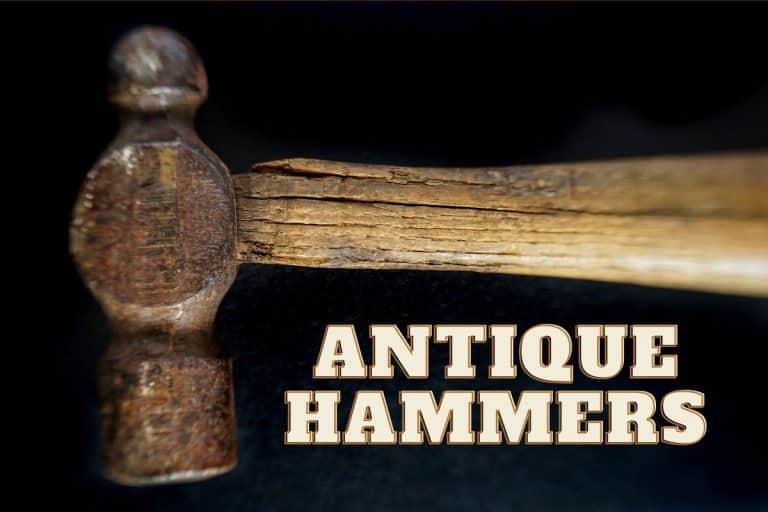Are you curious about the value of your antique grandfather clock? Check out this guide on how to establish the worth of your clock, including factors such as its age, condition, and rarity.
Antique grandfather clocks are not only beautiful, but they can also hold significant value. However, determining the value of an antique grandfather clock can be a challenging task. In this article, we will explore the factors that contribute to the value of antique grandfather clocks, such as condition, age, and rarity.
Additionally, we will discuss how to identify a grandfather clock, what to look for when evaluating its condition, and whether restoration is an option. Understanding how to value an antique grandfather clock is essential whether you are looking to sell, insure or pass it on to the next generation.
What Are Antique Grandfather Clocks?
Antique grandfather clocks are freestanding timepieces that have a weight-driven pendulum enclosed in the tower or ‘waist' of the clock. They are also known as longcase clocks, tall clocks, or floor clocks. Antique grandfather clocks are a type of clock that has been around since 1670.
They were designed by William Clement, a clockmaker who created a new form of a clock that would become known as the grandfather clock.
Valuing Your Antique Grandfather Clock: Tips and Strategies
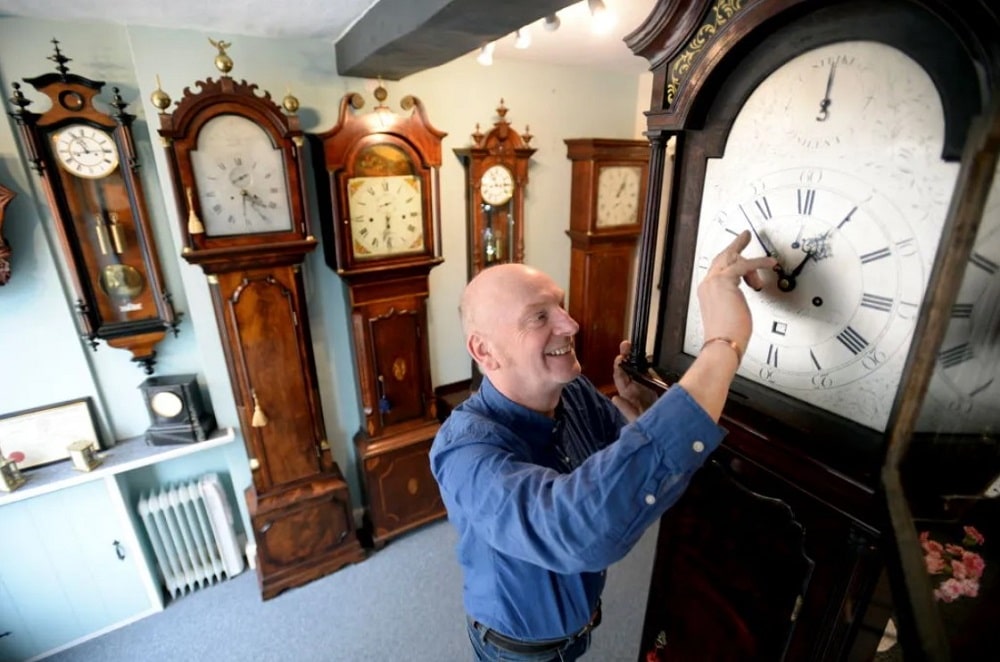
To determine the value of your antique grandfather clock, you need to gather some essential information, including:
- Who made the clock
- Any defects or damage the clock has
- When the clock was made
- The clock's working condition
- The complexity of the mechanism
Once you have gathered this information, you can estimate the value of your clock by researching comparable clocks on auction sites such as loveantiques, 1st Dibs,eBay, Etsy, and Chairish. Remember to adjust the value for any unique or interesting aspects of your clock or any damages.
In rare instances, you may not find any comparable clocks on the market, which could require you to enlist the services of an expert appraiser. For rarer clocks, it is advisable to consult multiple independent appraisers to get a range of values to work from. Since appraisers' work is subjective, multiple opinions can help you form a balanced view of your clock's value.
How to Determine the Value of Your Antique Grandfather Clock?
If you own an antique grandfather clock, you may be wondering how to determine its value. The value of a grandfather clock is important for several reasons, including selling it, insuring it, or including it in your estate. Here are some tips to help you determine the value of your antique grandfather clock:
1. Professional Appraisal:
You can enlist the help of a professional antique appraiser to value your clock, but keep in mind that they will charge you for the appraisal. It's important to check their credentials and make sure they have experience dealing with grandfather clocks. You should also ensure that the appraiser isn't looking to purchase grandfather clocks, as this may result in an inaccurate appraisal.
2. Consider the Condition:
The condition of the clock is extremely important in determining its value. General wear is acceptable, but significant wear or damage can cause the value to plummet. Restoration may be an option if the clock is potentially valuable but has damage that can be repaired.
3. Evaluate the Clock:
To evaluate the overall condition, carefully inspect the clock for any damage. Make a note of anything that is prominent, paying particular attention to joints and details. If you notice anything, make a note of it and factor in how much it will cost to restore the damage.
4. Clock Mechanism:
It's important to determine whether the clock still functions properly. You can do this by comparing it to a modern clock to see if there is a difference in timekeeping. If it doesn't function properly, check the section on the clock mechanism for more information.
5. Age and Dating:
The age of your grandfather clock is another factor that determines its value. The older the clock, the more valuable it may be. Look for a maker's mark or manufacturer's stamp to establish the age of your clock. The internet can be a helpful resource to get a general date range for your clock. Some clocks may even have the date of production on them.
German Antique Grandfather Clocks
Speaking of antique grandfather clocks, we have to mention German antique grandfather clocks. German antique grandfather clocks have been admired for their precision, craftsmanship, and aesthetic appeal. Originating in the 17th century, these clocks have a long and storied history that reflects the excellence of German clockmaking.
There are several reasons why antique German grandfather clocks are highly valued:
- Craftsmanship: German clockmakers were known for their dedication to quality and attention to detail. They meticulously crafted each component of the clock, from the movement to the dial, using the finest materials available. This high level of craftsmanship contributed to the longevity and accuracy of these timepieces.
- Movements: German Antique Grandfather Clocks often feature intricate mechanical movements, which are powered by weights and pendulums. These clocks may have either a one-day (30-hour) or an eight-day movement, requiring winding either daily or weekly, respectively. Some of the most well-known German clockmakers that produced movements for grandfather clocks include Gustav Becker, Lenzkirch, and Junghans.
- Cases: The cases of German Antique Grandfather Clocks were typically made of high-quality hardwoods, such as oak, walnut, or mahogany. The design and style of the cases varied, ranging from simple and unadorned to elaborate and ornately carved. Some clocks featured intricate inlays or marquetry, while others showcased elegant veneers and impressive wood grain patterns.
- Provenance: The value of a German Antique Grandfather Clock can be significantly influenced by its provenance or the history of its ownership. Clocks with a well-documented history, including information about previous owners or any restoration work, are generally more valuable.
Collecting and preserving German Antique Grandfather Clocks can be a rewarding and fascinating endeavor, as these timepieces represent not only the skill and artistry of their makers but also provide a window into the history and culture of the time. With proper care and maintenance, these clocks can continue to function accurately and remain treasured heirlooms for generations to come.
What is a Pendulum?
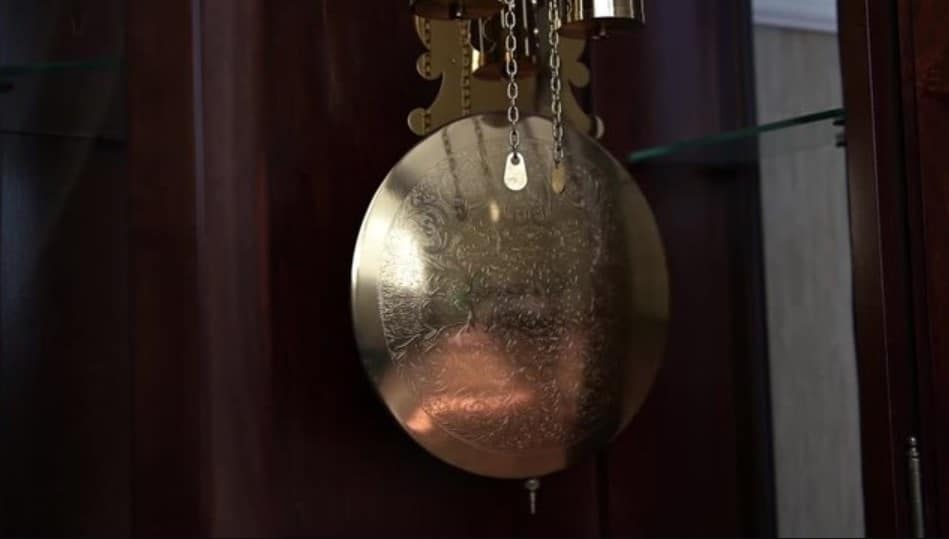
A pendulum is a weighted object suspended from a fixed point that swings back and forth. A clock's pendulum is usually made of brass or steel. Stainless steel pendulums indicate a modern grandfather clock. Some pendulums can be more decorative and may be made of precious metals.
How to Check Your Antique Grandfather Clock's Pendulum?
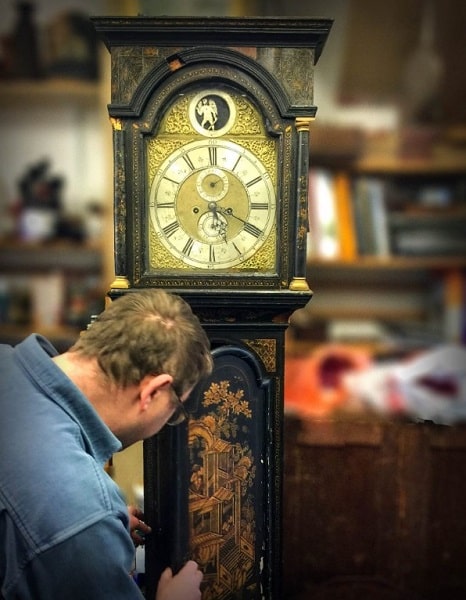
To ensure your antique grandfather clock is running smoothly, check the pendulum's rhythm. A properly functioning pendulum should swing regularly and rhythmically. Any unexpected movements can indicate an issue. A pendulum that moves too freely and doesn't keep time could suggest a loose fitting at the top of the pendulum.
Understanding Clock Movement
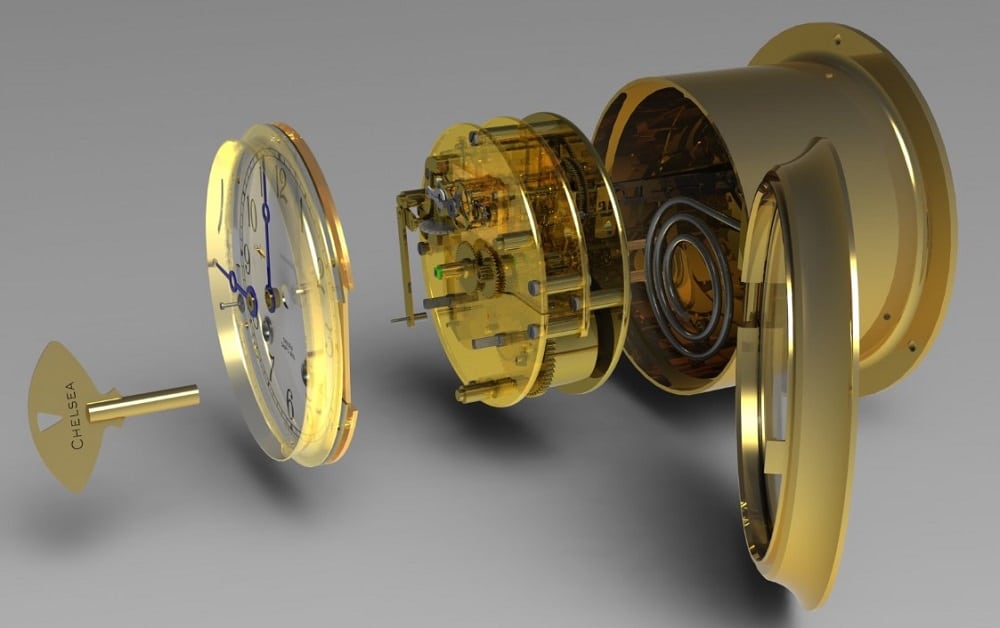
Clock movement refers to the internal workings of a clock that enable it to keep time accurately. It is the technical term used to describe the main clock mechanism's action. To determine the quality of a clock's movement, examine the gears and plates on the mechanism.
Checking the Condition of an Antique Grandfather Clock's Movement
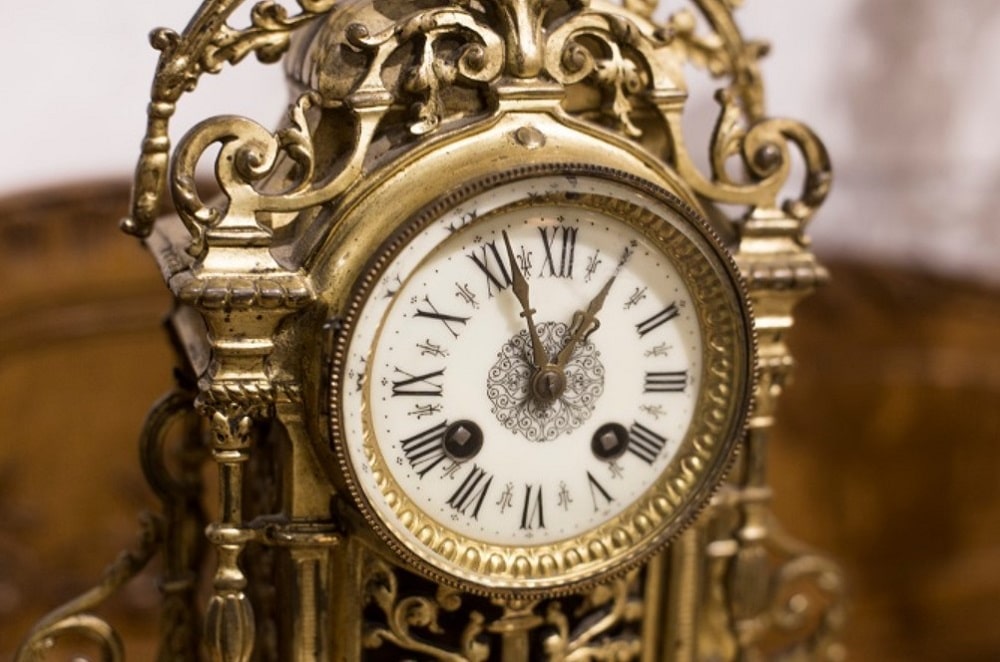
- Locating The Movement: Typically, the clock movement is visible from the clock face. However, sometimes it may be partially or entirely hidden. In such cases, a panel will open around the clockface to access the movement.
- Examining The Movement: When inspecting the movement, you need to check for smoothness. Jerky or rough action of the gears or plates usually indicates that the movement was poorly constructed or is failing in some way.
- Identifying Any Issues: It's essential to look out for any issues such as worn-out components, missing teeth, or damage to the gears. These problems can affect the clock's accuracy and lead to its eventual failure.
What to Look for In Antique Grandfather Clocks?
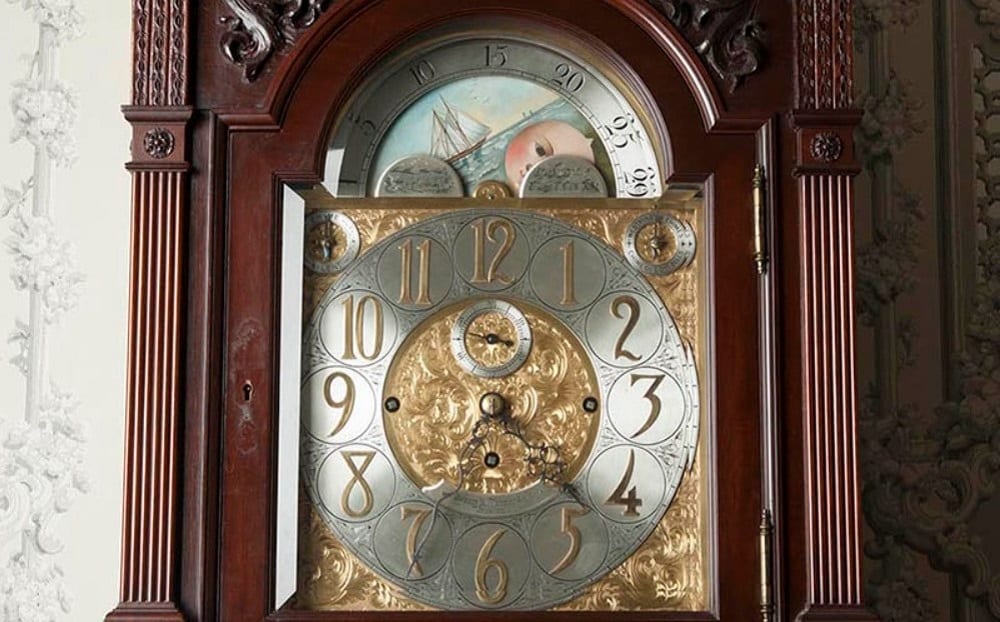
Here are some steps you can take to assess the clock's overall value and appeal:
- Examine The Design: Ornate and intricate clock face designs can increase the desirability of your clock, although they may not necessarily add significant value.
- Check For Functionality: Ensure the dials function correctly and are not hindered.
- Evaluate The Condition: Inspect the clockface for any defects or damage, similar to examining the body of the clock. Any issues could lower the clock's value or deter potential collectors from bidding on it.
Conclusion
Valuing an antique grandfather clock is crucial when it comes to selling, insuring, or passing it on to the next generation. Understanding the factors that determine its worth, such as condition, age, and rarity, can help estimate the value of the clock.
It is also important to check the clock's pendulum rhythm, evaluate the clock's overall condition, and examine the clock's movement to ensure its functionality. Seeking the services of a professional appraiser or consulting multiple independent appraisers can help obtain a range of values to work from.


